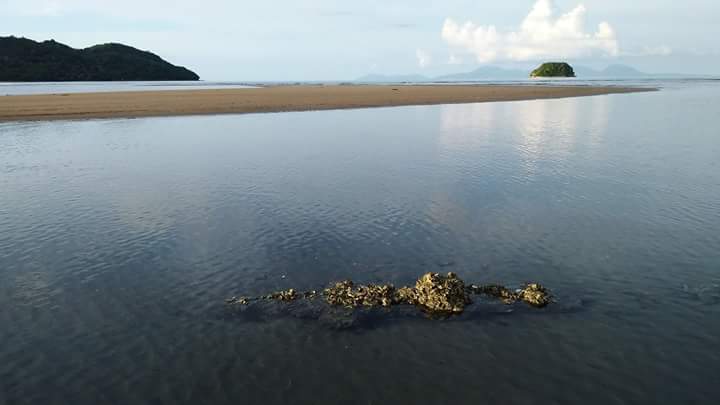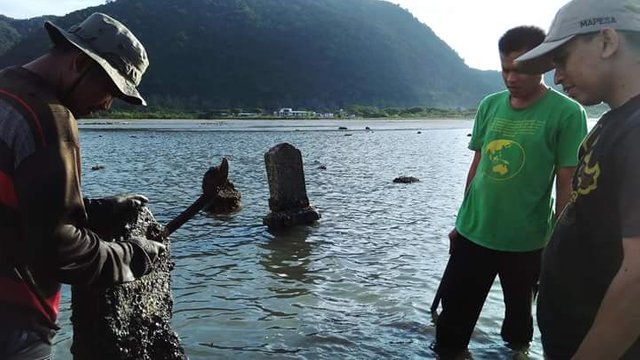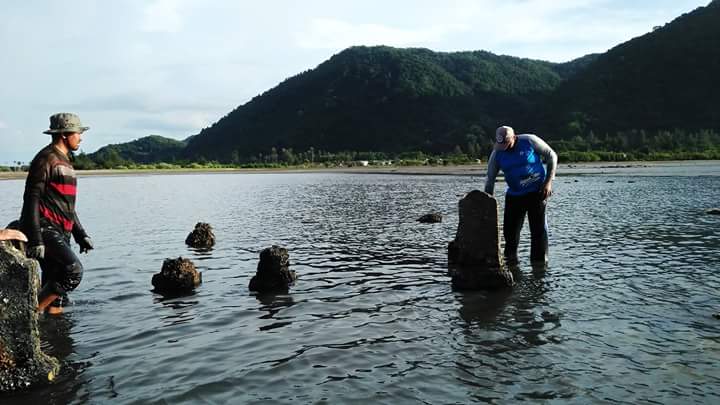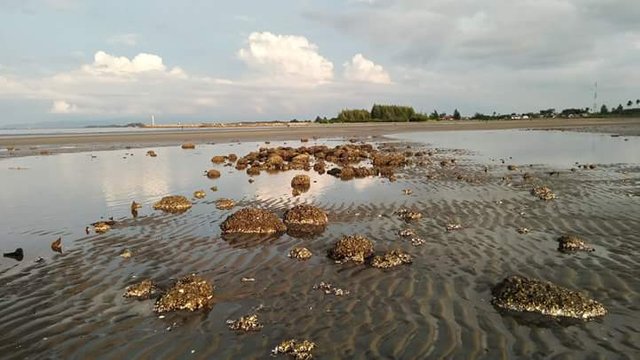Keindahan Alam di Balik Misteri Ujung Pancu (Natural beauty behind the Mystery Ujung Pancu)
PM, SEJARAH- Ketika matahari berada di belahan bumi utara, Benua Australia dingin dan bertekanan tinggi, Benua Asia lebih panas dan bertekanan rendah. Angin akan bertiup dari daratan bertekanan tinggi (Australia) menuju daratan bertekanan rendah (Asia). Karena menuju ke utara khatulistiwa, angin dibelokkan ke arah kanan, menerpa sepanjang pantai barat Sumatra lalu tersandung pegunungan Bukit Barisan yang melemahkan kekuatannya.

Sementara itu di ujung barat laut Sumatra, Bukit Barisan telah berhenti, dan angin seperti menemukan pintu untuk bertiup ke daratan Indocina. Orang-orang yang tinggal di Ulee Lheuh (tanjung yang lepas dari daratan utama; sekarang, Ulee Lheu) segera menyadari angin yang tiba di setiap bulan April itu. Orang Aceh lazim menyebutnya dengan “Angen Barat” atau “Museim Barat”, atau dengan istilah lain, angin muson barat daya yang bertiup mulai April sampai Oktober.
Orang-orang yang tinggal di Ulee Lheuh, dulunya, mengadakan khanduri di permulaan “Museim Barat” untuk secara bersama-sama berdoa demi keselamatan. Mereka menyebut khanduri itu dengan “Khanduri Laoet” oleh sebab musim angit barat akan mempengaruhi gerak pelayaran dan berbagai kondisi di laut. Permulaan hembusan angin itu, kiranya, juga akan dicocokkan dengan almanak hijriah (posisi bulan) untuk mengetahui keuneunong/keunong, yakni pengetahuan yang akan membantu mereka memprediksi keadaan-keadaan yang dapat terjadi di sepanjang musim itu (pengetahuan semacam ini, dewasa ini, lebih dikenal sebagai bagian dari Klimatologi dan Geofisika)

Ketika orang-orang Ulee Lheuh melihat ke arah dari mana angin itu bertiup, maka di sana terlihat barisan perbukitan yang menjulur dan berujung di laut. Dari ujung sanalah kiranya angin barat atau barat daya itu telah bertiup. Itulah “ujung angin barat (atau barat daya)”, ujung “Pachua”
http://portalmodern.net/misteri-di-balik-sejarah-ujung-pancu/
(portalmodern.net-MusafirZaman-MAPESA)

@@@@@@@@@@@@@@@@@@@@@@@
PM, history-when the Sun is in the northern hemisphere, the continent of Australia the cold and high pressure, the Asian continent more heat and low pressure. The wind will be blowing from the land (Australia) high pressure towards low pressure inland (Asia). Since heading to the North of the equator, the wind is deflected to the right, along the western coast of Sumatra hit then tripped Barisan mountains which weaken the strength.
Meanwhile in the far northwest of Sumatra, Bukit Barisan has stopped, and the wind is like finding the door to blow inland Indochina. People who live in Ulee Lheuh (the Cape of the Mainland of Ulee Lheu,; now) soon realized the wind that arrived in April it each month. The Aceh people customarily call it with "Western" or "Angen Museim of the West", or in other terms, the southwest monsoon that blows from April until October.
People who live in Ulee Lheuh, formerly khanduri, held at the beginning of the "Western Museim" to collectively pray for the sake of safety. They call it with khanduri "Khanduri Laoet" by reason of the angit West season will affect the motion of the cruise and the variety of conditions at sea. The beginning of the wind gusts that, presumably, will also be matched with the Almanac Hijri (the position of the Moon) to find out keuneunong/keunong, that is, knowledge that will help them predict situations that can occur in all seasons ( This kind of knowledge, today, more commonly known as part of the Climatology and Geophysics)
When Ulee Lheuh people look to the direction from which the wind was blowing, then there is seen a sequence of hills running and culminated in the sea. It was there that let the wind from one end of the West or Southwest that was blowing. That's the "end of the West wind (or Southwest)," tip "Pachua"
